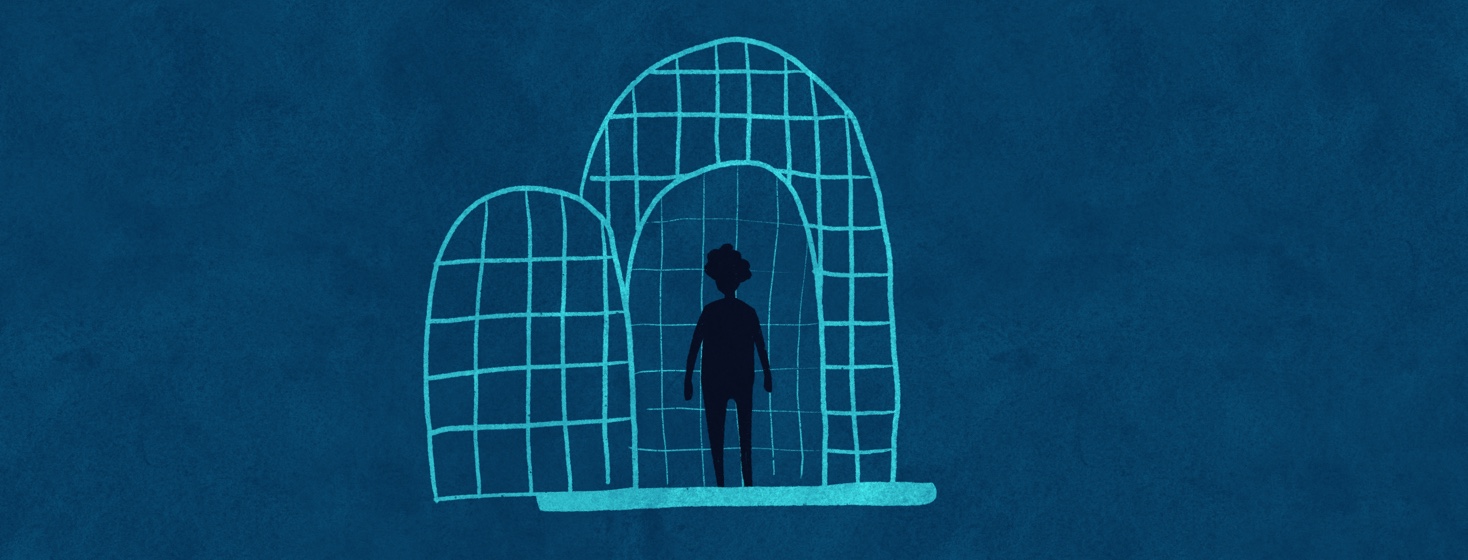Chronic Illness: A Life Sentence or A Lifeline?
A chronic illness diagnosis can be a very confusing and terrifying experience. Being told that I had a medical condition that will never go away was a huge shock for me. Previously, every time that I had visited a doctor for a health reason, I would be given some medicine to take for a few days and I would then be able to go about my normal business.
I still remember the look on the doctor's face when I asked "what do I need to take to get rid of it?" and he had to inform me that this was something I would have for life.
I was overwhelmed at first and definitely took this as being handed a very undeserved life sentence of suffering. However, I have grown to see my diagnosis in a different light. Now I like to think of it as more of a lifeline - a reminder to take care of myself a lot better.
Not that I was particularly off the rails and living a rockstar lifestyle, but I certainly wasn't paying too much attention to what I was doing to or putting in my body. I guess it was pretty normal behavior for a 21-year-old, but it certainly wasn't a sustainable lifestyle in the long term.
Exercise
Ankylosing spondylitis is a condition that requires you to stay active or there is a risk the spine will fuse together. This certainly gives me more motivation to exercise than any personal trainer could ever do.
As a result of this, I start every day with a series of stretches and exercises aimed at keeping my joints active but also loosen up any stiffness in my body and get me ready for the day. I also try to get at least 4 workouts in a week, but of course, this very much depends on how my body is feeling at the time.
Not only does having AS encourage me to work out more, but it has also made me more careful with how I exercise. I concentrate a lot more on my form when completing exercises, especially those that engage my back or legs, to make sure I don't do myself any damage. Long gone are the days where I would swing around a heavyweight uncontrollably to try and impress my friends. Now I am very comfortable starting with a lower weight and gradually moving up. It has taught me that being healthy and safe is way more important than looking 'macho'.
Diet
I've always been vegetarian but this doesn't necessarily mean that I always had a healthy diet. The easy option of just eating French fries was one that I took on numerous occasions.
But I have found that what I eat often has a direct effect on how my AS affects me, so if I eat rubbish then more often than not I will also feel rubbish. Now I research the foods that I eat and put more effort into planning what I am going to cook. I strive to give my body what it needs to fight this battle and attempt to keep flare-ups at bay.
However, flare-ups are inevitable and during these times I put even more energy into making sure my meals are filled with anti-inflammatory foods such as turmeric and ginger in order to make a swift recovery.
I don't want to create the impression that now I live on a strict diet of kale and walnuts, but I certainly put a lot more thought into what I am eating and how it affects me and my AS.
Going out and about
Before my AS diagnosis, I would often find myself agreeing to go out to most invitations that I received out of the fear of missing out. Being from the UK, this would usually involve a lot of drinking and walking. I continued this "say yes" attitude early on in my days with AS but found that it did me more harm than good. Hangovers aside, I found that it often instigated flare-ups or prolonged my recovery from one.
My AS has made me evaluate the consequences of my life choices and take into account how my body will be affected by these choices.
I always give my liver a much-needed day off whenever I have to inject or take my medication. If a plan may negatively affect me in the long run or involves too much walking for me, I make compromises with my friends. This may mean staying sober for the night or meeting people later at the final destination that doesn’t require any further walking.
I am far from tee-total, but I think my body is grateful for the extra care I am giving it. Instead of thinking of the drunken fun I might be missing out on, I think of the extra pain and potential flare-ups that I am hopefully missing out on.
In conclusion
I know it sounds ironic to say that having an autoimmune disease has helped me become healthy but honestly I have never felt healthier. In a strange way, I am happy that it happened to me early on in my life. I think that if I had continued my bad habits of eating unhealthily, drinking excessively, and working out irresponsibly, I may have done a lot more damage to myself.
It is easy to focus on the negatives of AS or any chronic illness. However, I think it serves us a whole lot better if we try to look for the positives that come with it, no matter how well they might be hidden. Keeping a positive state of mind is crucial for battling chronic illness.

Join the conversation